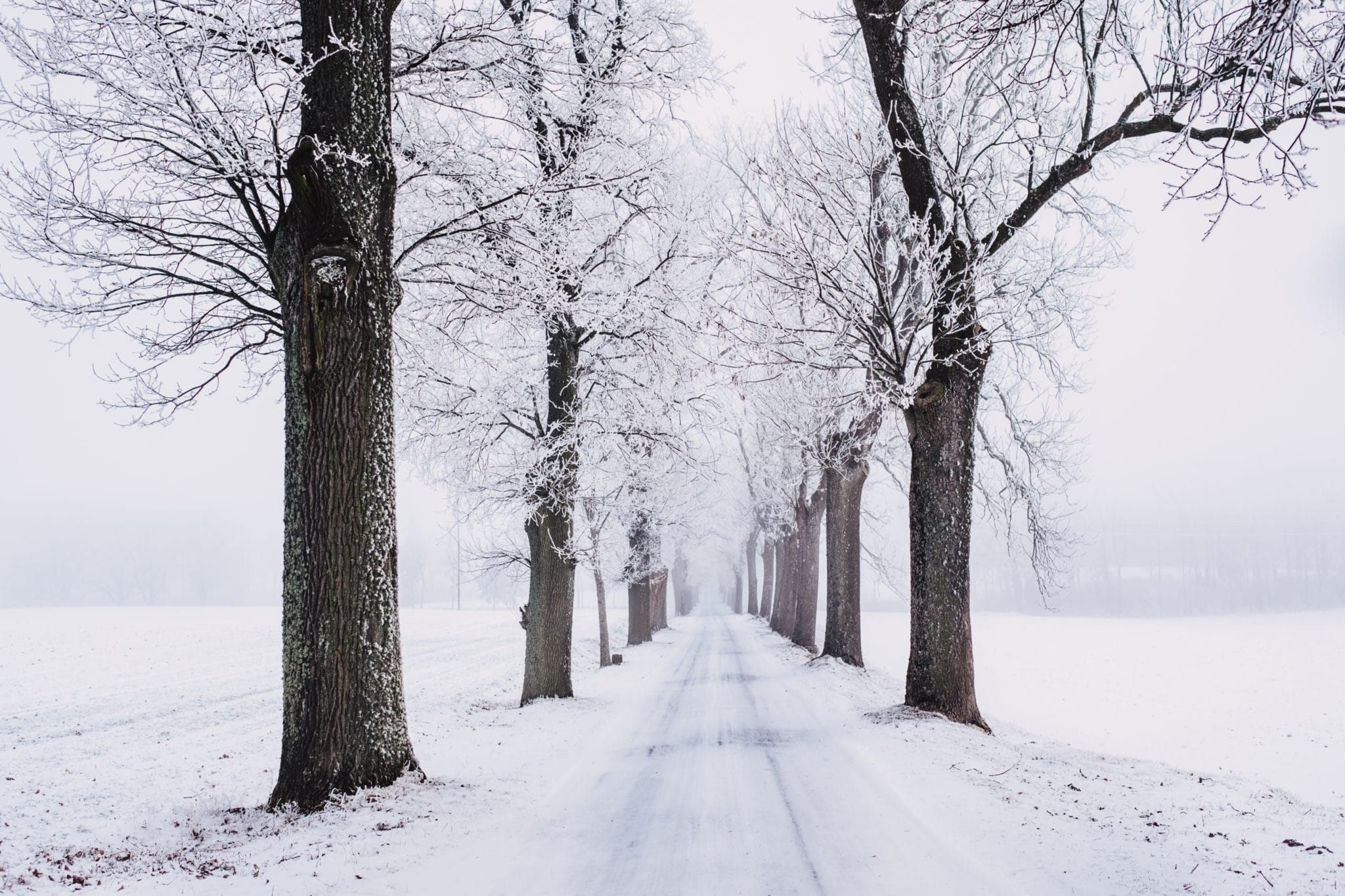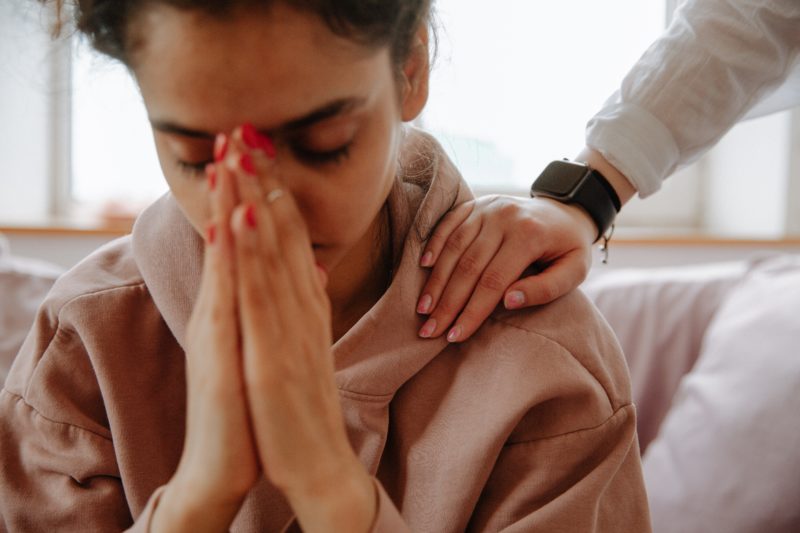
For many, the holidays are a time of celebration, joy, and togetherness, but for some people, this normally cheerful time of year brings up feelings of seasonal depression and grief. This is understandable—it’s hard to feel cheerful or celebrate gathering with your loved ones when you’ve lost someone special or when you’re feeling especially down.
The holidays can be extra challenging for those with seasonal affective disorder (SAD). It’s hard enough for one person to grieve the death of a loved one, and adding SAD to the mix can feel overwhelming.
However, you’re not alone. We’re here to help you further understand and explore SAD and grief and offer some ways to cope with seasonal depression and grief during the holidays.
What is Seasonal Depression?
Seasonal affective disorder (SAD) definition
SAD is a version of depression that affects people during certain times of the year. Most people who experience SAD feel its effects during the fall and winter months, while others experience it during the spring and summer. The stress that accompanies the holiday season, whether from grief or lack of sunlight or a slew of other reasons, causes many people to feel isolated, lonely, and unfulfilled.
According to Psychology Today, “approximately 10 million Americans are affected by SAD” every year. Although no studies have revealed specific causes of SAD, many people hypothesize that getting less sunlight during the fall and winter months can disrupt your serotonin and melatonin levels, which affect your mood and quality of sleep. Many people with SAD choose light therapy treatment, medications, or therapy—or a combination of those treatments—to ease their symptoms.
Social isolation, like what we’re experiencing now with COVID-19 is one of the number one causes of seasonal depression, especially during the holiday season, so it’s important to pay close attention to your emotions and mood to determine whether or not you might be feeling SAD’s effects.
Seasonal affective disorder symptoms
Seasonal depression symptoms reach far and wide, so we’re going to cover a few to keep an eye out for. You might be experiencing SAD symptoms if you:
- Feel depressed most of the day, almost every day for a long period of time
- Aren’t interested in activities you usually enjoy
- Experience low energy most days of the week
- Are having trouble sleeping
- Are oversleeping
- Notice changes in your weight or appetite
- Have trouble focusing on tasks
- Feel worthless, hopeless, or guilty
- Have regular thoughts of suicide or death (if this is the case, know that you are not alone, and please skip ahead to the “Resources” section of this post for ways to get help)
Common Symptoms of Grief
While grief feels different for different people, its symptoms are both mental and physical and mirror SAD symptoms. Some grief symptoms to look out for are:
- Joint or muscle achiness without the presence of any illness symptoms, such as fever, chills, etc.
- General anxiety (or holiday anxiety in the context of this blog post)
- Worry
- Tiredness or low energy
- Weakness
- Sadness or frequently feeling teary

Coping With Seasonal Depression and Grief During the Holidays
Now that you know what to look for when it comes to seasonal depression and grief during the holidays, it’s important to learn how to cope with these feelings to practice healthy self-care and get through the holiday season comfortably.
Grieving during the holidays, especially when you experience SAD, is overwhelming and can make your usual holiday celebrations or traditions feel challenging to confront. Here are some ways to gently cope with your grief during the holidays.
Give “togetherness” a new meaning
While COVID-19 has made gathering a challenge, you can always stay in contact with friends and family via Zoom or FaceTime. Maybe you set up a game night, holiday-themed happy hour, or virtual gift exchange to feel less alone.
Keep in contact with people who are a part of your quarantine bubble so that you can have in-person time with those you love. Host a game night, a dinner party, or just take some time together to relax and listen to music or watch your favorite holiday movie. Planning events like this can give you something to look forward to when you’re feeling lonely or sad.
Don’t hesitate to reach out to close friends or family members for support, either. While they may not know exactly how to help you, they will probably be honored that you feel like you can reach out to them. Ask them to help you with activities or tasks that feel challenging, such as grocery shopping, cleaning the house, or cooking dinner.
Get outside
Getting fresh air and sunshine has long been a proven way to relieve feelings of stress, depression, and sadness. Try going for a walk or run around your neighborhood or at one of your local trails. You can even go visit the gravesite of your loved one to include them in your holiday celebrations.
Start a new tradition
If you shared a tradition with your loved one, it could feel wrong to continue it now that they’re gone. Maybe you plan a family vacation instead of spending the holidays at home. You can also do small things to celebrate your loved one, such as leaving a place for them at the dinner table or sharing memories of them with your closest friends and family members.
Remember that it’s okay to have a plan b, too. You might normally go to a family member’s house for the holiday, but if that doesn’t feel right for you this year, that’s okay. Maybe you stay home and watch a movie you and your loved one like to watch together. Feel free to include a friend or family member in your plan b so that if things start to feel like too much, you have someone to support and care for you.
Take up new indoor activities
Are you a creative person? Try purchasing a few coloring books to keep your mind and hands busy or make some holiday decorations and crafts. If you like to cook or bake, you could make some holiday treats for your family and friends. If you want to honor your loved one and feel closer to them during the holiday season, try cooking their favorite recipe.
If this year has taught us anything, it’s how to pass hours indoors. From jigsaw puzzles to films to home improvement projects, the possibilities are endless.
Volunteer
Helping others is a great way to both keep yourself busy and honor your loved one. You might try volunteering with an organization that was important to your loved one, or you can keep things close to home and help your neighbor with a task. Whatever you choose, giving back can feel heartwarming and rewarding, but if it feels like too much of a stretch for your mental or emotional health, that’s okay.
It’s important to remember that you don’t have to give in to any holiday expectations or pressures. It can be hard to tell people ‘no,’ especially if they are people you care about, but it’s okay to not be up for certain things.
Along those lines, it’s also okay to cancel the holiday season altogether. If this year feels like too much, stay home and don’t worry about celebrating. The holidays will come around again next year. Or, if the holidays are a symbol of renewal for you like they are for many others, allow the holiday season and its structures and routines to hold you up during this tough time.
Read more: How to Honor a Deceased Loved One at Christmas

Practice Self-Care and Be Kind to Yourself
The holidays often come with some level of expectation or pressure from family and friends, and while you might feel like you’re letting them down by not feeling the holiday spirit, remember that it’s okay to feel sad and to grieve. Now, more than ever, it’s important to be kind to yourself and to not extend yourself more than you want or need to.
Allow time and space for yourself to feel and to grieve and don’t be afraid to break down or confide in someone you trust. Chances are, no one expects you to have it all together; we all need a shoulder to cry on at certain points in our lives. Whatever grieving means to you—do it. Whatever self-care means to you—do it. You’ll be better for it.
If you don’t feel like you have someone close to you that you can trust with your feelings, you can explore joining a grief support group. A quick Google search for support groups in your area will most likely bring up both virtual and in-person gatherings in your community. This is a great way to connect with people who know exactly how you are feeling.
Seasonal Depression and Grief Resources
While seasonal depression and grief are things many people work through with the support of family, friends, and sometimes therapists, it’s okay if you can’t. If you’re feeling sad or depressed every day for long periods of time, contact your doctor or mental health specialist; they will be able to get you the help you need.
If any of your feelings surrounding the holidays come with thoughts of suicide, do one of the following immediately:
- Call 911
- Go to a hospital emergency room
- Call the National Suicide Prevention Lifeline at 1-800-273-TALK (1-800-273-8255)
How to Help a Loved One Through Seasonal Depression and Grief During the Holidays
If you’re not dealing with SAD or grief this holiday season, but you know someone who is, be sure to provide them consistent support. You can do this by checking in regularly to see how they’re feeling. Maybe you cook them a meal, invite them to a virtual gathering, or help them with tasks like cleaning the house or taking care of their pets.
Also, be sure to encourage them to seek professional help if you think it’s necessary. There’s no need to push them into something they don’t want to do, but it’s good to make them aware of the options available. The best way to do this is to express concern and let them know you’re happy to help them seek the care that’s best for them.
The holiday season can be the most challenging time for people navigating a loss or experiencing symptoms of seasonal depression. Remember to be present in your grief, to be kind and gentle with yourself, to accept support, and to allow yourself joy when it comes your way.



Recent Comments